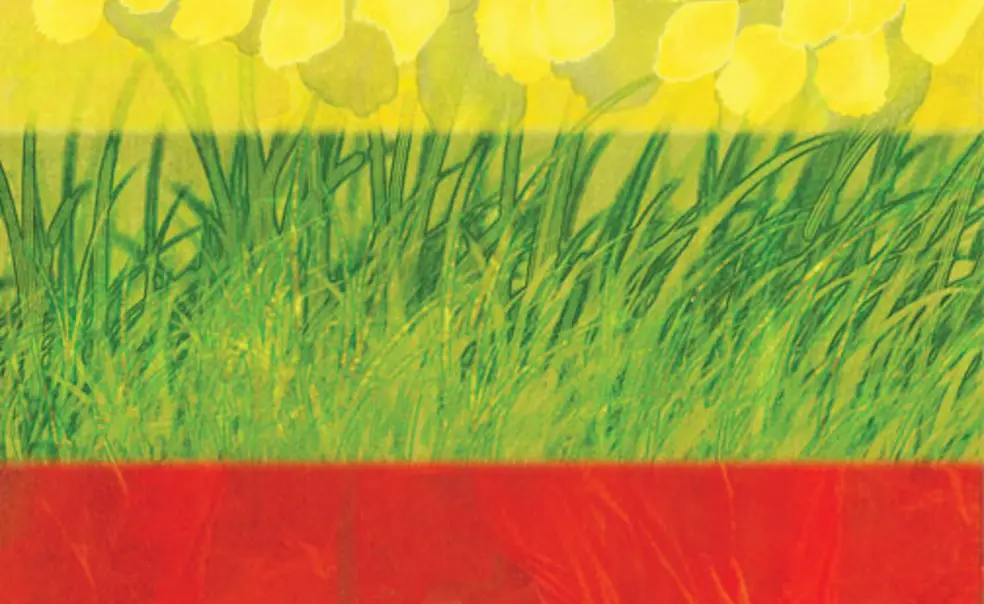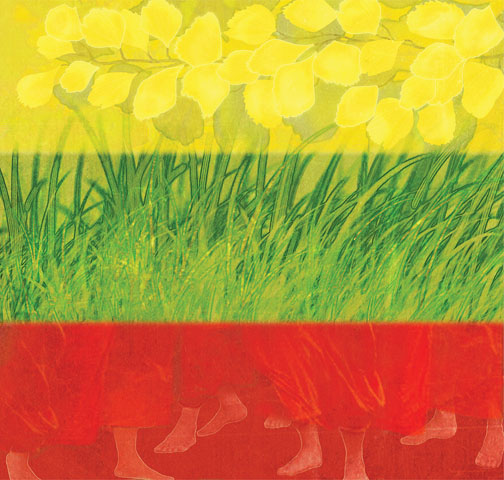Scent of a nation: Burma's aromas grip the heart
Six months ago, I was hurtling down the side of a steep mountain overpass, shrieking in an unknown tongue and clinging for dear life to the frayed ropes of a luggage rack. A blanket of stars above me, I was riding atop a pickup truck shortly after midnight in Burma, more recently known as Myanmar, that far-flung outback of Southeast Asia that books serve up on a platter of savory seclusion and forbidden territory, luring travelers from the beaten path. I had expected bramble bushes and never-ending plains dotted with brown faces and colorful ankle-length longyis. I had envisioned teatime, frothy orange liquid sloshing in my cup as rusty train rails rocked me gently beneath a setting sun. Though I knew better, I wanted to believe in the idyllic paradise and sate my gnawing wanderlust.
In a way, Burma is as unspoiled as romanticizing writers claim. Coupled with an ongoing campaign to keep out the press, the conspicuous absence of tourist-friendly infrastructure such as ATMs and widespread Internet access keeps most camera-toting visitors at bay. But it is brutality, not beauty, for which Burma has become known more recently. For two years while living in Asia, I had heard the stories of those who had fled the regime. I journeyed there to understand the reality of those who remained.
From the moment I landed in the Wild West of the East, I was overwhelmed by a smorgasbord of smells. Walking the crowded streets of Yangon, the former capital, I dodged streaks of red lightning, the leathery sweet scent of betel-nut juice whizzing past as men, women, and the occasional child spat the tobacco-filled leaves with unnerving precision and range. In Mandalay, I greedily gulped the scents of Indian curries stewing in pots and dancing down my nasal passage. Roasted peanuts and rising dough teased me awake while spicy fish soup lulled me to sleep in Nyaung Shwe. But not every smell brought the promise of olfactory indulgence. My head spun with the stench of rotting tomatoes on our bus in hilltop Pyin U Lwin. The reeking odor of cigarette smoke and vomit soured my stomach on the road to Hsipaw. Pickled this and fermented that, Burma brought me pleasures I would not soon forget and pain I longed never to remember.
As I rounded a corner in the ancient city of Bagan, I bumped into a young boy who looked about 15. He regarded me for a moment and boldly asked if I was Nigerian. I shook my head “no,” and he sighed: “Too bad for Africa. So much problem in Libya.” Puzzled, I stared at this barefoot boy, no taller than I, dirt streaking his clothes, teeth stained from chewing betel-nut, as he began a lengthy diatribe about freedom, justice, and death for liberation. He was 22, not a teenager. He had never left Bagan, and was an avid news junkie. Earnest eyes wide, he asked me not to forget his country when I left; I promised him I wouldn’t.
The brutal military junta that governs Myanmar came to power in 1962 under the leadership of General Ne Win. Claiming to “soothe” ethnic tensions in the fractious nation, home to more than 100 ethnic groups, the regime began a ruthless campaign to eradicate all opposition. Spying, beatings, jailing, torture, and disappearances became routine. Opposition leader and Nobel Peace Prize-winner Daw Aung San Suu Kyi was placed under strict house arrest several times between 1989 and her release in November 2010; countless others still languish in prison for unnamed crimes. Immobilized and disconnected by laws restricting travel and the prohibitive cost of automobiles and cellular service, many in Burma are held hostage, their bars the national borders that keep them in. Traveling in Burma, I refused to spend a cent that would directly support the junta — no package tours, no beer, no government-affiliated guesthouses.
I left Burma in a cloud of choking exhaust fumes. Back to my teaching in Thailand, I was asked to give a guest lecture on public discourse at a school for aspiring Burmese activists. Though I had taught the lesson to international and Thai students many times before, this time, inexplicably terrified, I stepped into the classroom, where I was greeted by a sea of smiling faces and poised pens. I wrote a single word on the board: rhetoric. As we unpacked the term, I scrawled several more: bias, to mislead, to pander, logical fallacy, charisma. They called out definitions, providing their names, provinces, and which of the myriad Burmese ethnicities they belonged to. In my mind, the room filled to bursting with the aroma of baked bread and spicy curry, the perfume of roasted peanuts and betel-nut juice not far behind.
For those few hours, Burma was not some forgotten land across the border. It was not a silenced country abandoned by camera crews and the international spotlight. It was the lingering scents of a nation that filled the room.
As the lesson wound on, the students shared their stories and we dissected the content of the course, “The Politics of Persuasive Discourse and Rhetorical Technique.” Class complete, as a gift, they smeared my face with thanaka, a mild-scented sandalwood makeup that dried to a crackly veneer on my cheeks as we shook hands and bowed our thanks. It goes without saying that I was inspired by them all. They risked their lives and the welfare of family members to gain knowledge they hoped would set their country free. Warriors for their cause, despite everything they faced — alienation, persecution, incarceration, even execution — still they came. Ultimately, that was why I went to Burma — I needed to see it to understand.
A few months later, as I stood in my kitchen, I thought of that young man in Bagan, his eager eyes, his reddened smile, his bare feet, and the ever-churning thoughts in his head. I thought of those students, equally ravenous for knowledge. I recalled sitting in a van near the Thai-Burmese border, watching as a stoic Burmese couple were seized from our vehicle while a uniformed officer smiled a plastic grin and told the foreigners all was well. All was not well. And as I stirred my pots and mixed my curries, I smelled those smiles, heard those aromas, tasted those stories, and remembered those faces knowing no fear. Scents and stories filling my kitchen, I knew I would keep my word: I may have left Burma, but Burma certainly has not left me.
Lauren Whitehead ’09 spent two years teaching and working at an NGO in Thailand and is currently working in nonprofit theater in Washington, D.C., while applying for graduate programs in international conflict resolution and negotiation.













No responses yet